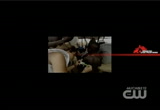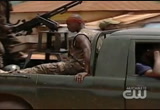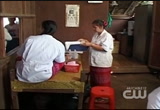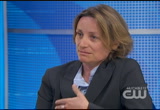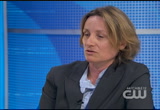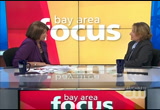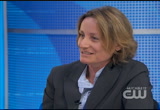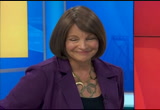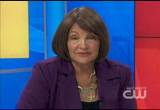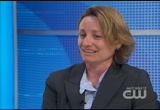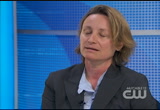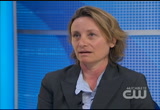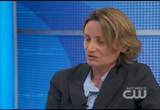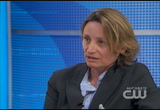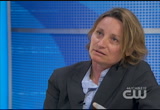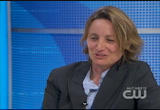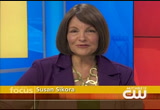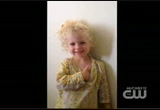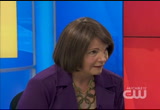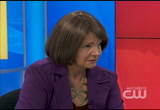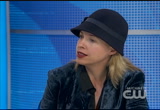tv Bay Area Focus With Susan Sikora CW December 30, 2012 8:00am-8:30am PST
8:01 am
. colleagues from many countries selflessly and in peace helping those in need. it's not fantasy, but doctors without borders. hear how it works and tiffany, the filmmaker and founder of the webby awards talks to us about her latest film "engage." i'm susan sikora, and that is on "bay area focus" next.
8:03 am
>> i have never seen so much zeros before. >> that is why it's a big welcome to the show. i'm susan sikora. as the new year starts, hoping for world citizens to just get along and worked unselfishly to help others may seem idealic and impossible. doctors without borders would disagree. since 1971, they have been doing just that. take a look. >> reporter: every year, more than 23,000 people for doctors without borders or msf from around the world, are committed to providing emergency medical care and relief supplies to
8:04 am
millions of people in distress in nearly 65 countries. this is possible thanks to the financial support from more than 3 million individual donors worldwide. msf is a private, non-profit humanitarian organization created in paris in 1971 by a group of doctors and journalists. now, an international movement, msf provides impartial help to people in need without discrimination and independent of political powers. all branches of the msf movement share the same charter and respect humanitarian principles and medical ethics in their work. msf teams provide medical assistance to people struggling to survive violence, epidemics, or natural disasters. providing the best quality care remains central to our actions.
8:05 am
from a journeyist , the priority is to provide humanitarian assistance to civilians caught up in armed conflict. our teams treat the wounded and ensure the people's essential needs are covered. [ speaking in native tongue ] [ through translator ] >> it's the only program, the only place where patients can be sure to receive treatment rapidly. >> msf also works where there is widespread disease or epidemics, where they're treating illnesses like colorra, organizing against meningitis or measles, msf teams can respond swiftly. the organization provides healthcare to people suffering from diseases like malaria, aids, and tuberculosis. in places lacking resources, health staff, infrastructure, or suitable treatment. msf also focuses on nutritional care in the context of
8:06 am
malnutrition. >> here with doctors without borders who sustains the miracles. the executive director. nice to have you here. welcome. >> good morning, susan. thank you for inviting me. >> it's wonderful to know such goodhearted, almost angels, if you will, exist. how does this -- i know it started in paris and everything, but whose idea was it and how long did it take to launch this and get it off the ground? >> it took a few months for a group of doctors and journalists, who experienced a crisis in nigeria and who were absolutely shocked and outraged by the humanitarian consequences of the crisis. and so, some of them were working for the red cross at that time, and they were not in a capacity to bear witness and to testify because of the nutrality mandate of the red cross. >> uh-huh. >> they decided to create their own organization to go back and provide medical assistance and
8:07 am
bear witness, which led to the creation of an organization that has, throughout its history, tried to combine -- [ indiscernible ] bearing witness with medical relief. >> okay, so you have this great idea, and it sounds -- it looks like the kind of thing we would all like to say i wish the better part of myself will say yes, i will go do this. it's another thing to actually show up. did you recruit? did they recruit doctors? did doctors clamor to do? this? how tough was it to get the people on board to get on the plane and go there and do the help? >> you know, it's been a gradual process, of course, and the organization 40 years ago was much smaller than it is today. today, we have 27,000, as we speak, 27,000 people, colleagues providing medical assistance. >> uh-huh. >> and it took years to actually get to a truck of volunteers to build the organization also and to divvy
8:08 am
up the medical practice that was acceptable for the doctors who joined the organization. >> uh-huh. >> and it's been a learning process throughout the year. >> when doctors go 32 their, sophie, do they stay -- is it like a tour of duty, if you will, they go for awhile and come back and resume their life wherever they're from, or do they go and do it endlessly? >> it depends, of course. some like me have been in the organization for a long time and i have been working with doctors without borders for no one years. >> you're not a doctor in. >> no, i'm in program management. >> okay. >> some decided to do one assignment. it was their dream and they fulfilled it. after they had to go back to the country and go back to the hospital and take care of family. i would say it depends. we want to facilitate the co- existence of the different people and in order to keep the
8:09 am
spirit in the organization. >> and we saw in the clip there what we looked at, the different situations and we assume doctors are going go their for medical treatment. the organization also deals with people who are threatened, their survival is threatened. catastrophe and disasters. violence armed conflict. let's talk about those. how much danger are these doctors in when they are doing their humanitarian work of saving lives? >> well, when you are working in the country that is either unstable or at war, of course, there is no zero rich, right? we are perfectly a -- zero risk, right, we're perfectly aware of that. they try to take a lot of prevention measures to protect the staff. the point is to not sacrifice our colleague for the sake of humanitarian assistance, so we have drastic prevention measures and security protocols. >> uh-huh. >> we also do regular
8:10 am
assessments on the security situation and i must say, that is when you look at the scale of our operations and when you look at the number of the people we manage to treat in the very difficult circumstances, the proportion of security is quite close. we capitalize some response over the years and the key to the security on the staff is to actually get acceptance and to get recognized for what we are and who we are to get known and understood by all of the parties of the conflict. so that they all see an interest in having us there and since we're providing relief to the communities. >> okay. we're going to take a break. when we come back, we'll talk about the lodgistecs of all of this. when you get there s the operating room waiting or do you have to take everything with you when we return.
8:12 am
. welcome back. we're talking to sophie, the executive director, not a doctor herself, but show is the executive director of doctors without borders. they have been going on since no one 71 and they go into places that are sort of the scene of a catastrophe, violence, where people need help, where people have lack of healthcare and they help. they work. i assume they don't get paid or
8:13 am
do they? they must get something. >> they get a small stipend while away so they can continue to rent their apartment or pay for their insurance. >> yeah. >> or not work for a couple of month when is they're back. >> that make sense or they would go bankrupt and no one would do it. do you need other people besides doctors? do i assume any nurses, besides doctors and nurses, anyone else? any people? >> we need a lot of people who are key and instrumental to the programs. we need administrators and to recruit the national stuff on the ground. >> uh-huh. >> we need? program -- with the authorities and the communities. we need lodgistishians to ensure all the surprise -- and they can stop treating patients. >> yes. >> as soon as they arrive. >> let's get to that. the supplies. i imagine and thought to myself, how big is the plane they have to take in there. i assume you have to take
8:14 am
everything with you. the doctors need to know what they need when they get there. you can't count on anything being there, otherwise you wouldn't -- i mean you're going to a place in crisis. >> actually, there are -- in most of the places, we can buy locally some of the material we need, wood plastic or mechanical parts. >> uh-huh. >> and food also, right, if we're eating with -- dealing with a crisis, we will not import food from abroad. it's true in many circumstances, we need to import the medical material especially because over the years, we have given our kits that allow us to respond to specific medical crisis in a very, very short time and so, for example, if we made an assessment and realize there is a cholera epidemic and that 10,000 people might be affected by this we call the warehouse
8:15 am
in europe and ask for 2500 kits of kits of cholera. >> where you going on that side of the ocean? >> yes, exactly. >> uh-huh. >> and you have every single thing you need to deal with cholera outbreak. and starting from the bucket to the tent and to the antibiotics and injections material, et cetera. >> uh-huh. >> this is how we did with logistics. >> what do you do, i assume you have more than one crisis. you look at the state of the world and constantly hear of places in need. you didn't go to church or place of worship. people are not as well off as we are, even though we're dealing with the economic crisis. they're worse there and what do do you when several people need your help? >> there is so many crisis and they tend to last. we have been in somalia in the
8:16 am
democratic republic of congo in sued an for more than -- sudan for more than three decades now, right? at the same time, there is a series of new crisis or recent chris ones in ivory coast and there is another major crisis this year. for us, it's a big challenge to have enough response or resources, both financial and human resources and in sudan, it's a big deal trying to find skilled staff. >> uh-huh. >> and to respond to and treat people in the hospital. yes, we're struggling with this and what we do is try to appeal to supporters and try to appeal to other organizations to step in. >> uh. >> we can't do it all ourselves. >> and you work for someone like the red cross? >> no. >> and you want to make sure
8:17 am
that you're maximizing help can you put out there. >> what we want in a major emergency, what, ideally for us, i think we would have the capacity most of the time to respond to most of the medical needs, but it would be helpful to rely on other organizations, the planning and the role of u.n. organizations and this is what we try to do not to be on our own in this crisis. >> i see from your website, we're going to show at the end of the segment, doctors without borders.org and you are.org, non-profit and you did mention the finances and all of this costs money. how are you funded? >> we're funded primarily by private donors and supports. the reason is to keep our independence and ability to react when we feel the need, we're not seeking funding from governments with who are deeply involved in this crisis. >> uh-huh.
8:18 am
>> the u.s. and the french government, we're not asking any money to them and this makes us rely more on individual and private funding. >> and people watching at home can't write a big check, they're not a millionaire, everybody. >> that would be help. everything little bit helps. >> you have been involved with the organization now for how many years? four years you're the executive director. >> yeah. >> and no one years involved? >> you have seen some places? >> yes. i spent half of my care -- with msf in the field and i go to the field regularly every year and i do one field assignment and i think the most rewarding experience is, that comes to my mind and one is the day that i was able to witness the
8:19 am
hospitalization of two north korean kids and whose names were kung fu and num chu and traveling for more than two years trying to escape from north korea because of major health problems and we're helping them go through the process of this clandestine treatment from north korea and china reaching some countries in southeast asia and finally be able to reach south korea and give proper care and this is the most rewarding experience i have had. >> and this is wonderful to know people exist on a daily basis doing this and we thank you for being here. >> thank you. >> and we wish you continued success and in your work. if you would like to help doctors without borders, however little or large the amount you can give, it's the end of the year, why not. doctor that is
8:20 am
8:21 am
8:22 am
sciences and sits on the board for the huffington post. adviced hillary clinton on technology and society, produced several films and named by "newsweek," as, quote, one of the women shaping the 21st century. she is a parent and is focused on making an impact, especially in our everyday use of technology and connection and her newest film is called "engage." take a look. [ speaking spanish ] >> that is your life clock. some day it's going to stop. a lot of things are going happen in the world between now and then, so what are you going to do while you're here? stand on the sidelines? or are you going to be part of
8:24 am
give a little bit, give a little bit of your life to me. >> tiffany, welcome back. you always are so fascinating to me. you're constantly re-inventing yourself. do you ever run out of new ideas? >> right now, i'm in a fertile period. and i'm always interested in the same thing and that is basically the internet. >> uh-huh. >> and how do we be mindful of
8:25 am
how we're living in the world? in essence, i'm exploring the same idea for 20 years. >> and it's funny. you started the webbies and think this is miss tech here and now, your message has become the last few films, wait, put the stuff down and talk to someone? >> yeah. >> and what is with the hand over the heart? >> that is great observation. and, you know, always in to technology. i wanted to get back to web making to make the world better. >> uh-huh. >> and a lot of my films explored the good, the bad or -- and other people say it's making us distracted and we're not really paying tag and this stuff. i'm in the middle and i'm
8:26 am
saying all of this amazing technology, let's talk about those and there is all of this stuff that take away from technology and by talking about them, stopping our very, very busy lives and talking. i had a future film last year that is called connected, 80 minutes long and available for the public. >> uh-huh. >> and -- and even our film, we have that whole kit. we want you to talk about this with the people closest to you. >> conversation cards. remember when you were a kid in school? flash cards, you know? >> and that is something that is low-tech and touchy feely? >> yeah. >> and makes you sit down and face somebody and talk to them, i would think. >> and there is so many amazing aspects of technology and we're all moving quickly. put down the cell phones, watch the film and let it emotionally move you, have a conversation and that is what -- and with
8:27 am
these shorter films, we have a grant to use them and you saw from the film. >> uh. >> people all over the world put their hands on the heart and that is exciting to make films in this new way. >> i am curious to know if you talked to a lot of people, i am sure they tell you everything, and if they said to you, if they think they connected? >> and i have friends, the whole thing. am i engaged? >> yeah. >> that is a different thing. do they think they are s my point. >> i think, you know, it doesn't replace true connection, like we say this line in the film connected which, is connecting broadly is meaningless unless you connect deeply. >> huh. >> and that is not to discount -- even when the giants were winning or the hurricane is going on, you feel connected to people all around you, to your community and to the world and
8:28 am
in ways you didn't before. i am a believer that it's valuable but nothing in the way to connect with the ones you love. >> uh-huh. >> most of my films deal with that and i finished a book. >> that is called? >> brain to you wore -- power. >> and that is -- and they started doing a book series for the ipad and kindle. i right a -- wrote a book called brain power from neurons to networks and i look at now research and how to best nurture children's brains and i link that to how do we best nurture the global brain of the internet. >> quick question. as the new year is approaching us within hours, literally, are you encouraged or displayed? >> i am ultimately an optimist. i believe all the technologies are a desire to connect. i unplug one day a week. >> you do that? >> i still do that. >> the movie is called "engage
8:29 am
and that is available for people how? >> for free. go to let it ripple.org. >> okay. >> the book is brain power? >> you get that on the itunes store. >> okay. >> and we're going to leave with you another look at engage. i'm susan sikora. thank you for watching. . >> some day, things are going to stop. a lot of things are going to happen in the world between now and then. what are you going to do while you're here? stand on the sidelines? or are you going to be part of something bigger?
243 Views
IN COLLECTIONS
KBCW (CW) Television Archive
Television Archive  Television Archive News Search Service
Television Archive News Search Service 
Uploaded by TV Archive on

 Live Music Archive
Live Music Archive Librivox Free Audio
Librivox Free Audio Metropolitan Museum
Metropolitan Museum Cleveland Museum of Art
Cleveland Museum of Art Internet Arcade
Internet Arcade Console Living Room
Console Living Room Books to Borrow
Books to Borrow Open Library
Open Library TV News
TV News Understanding 9/11
Understanding 9/11



